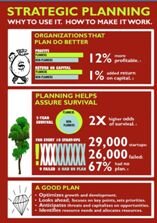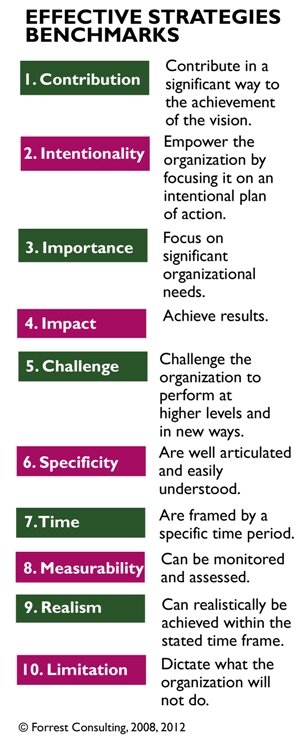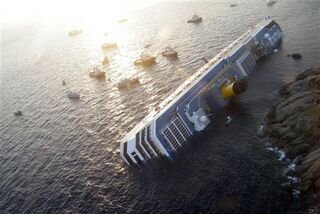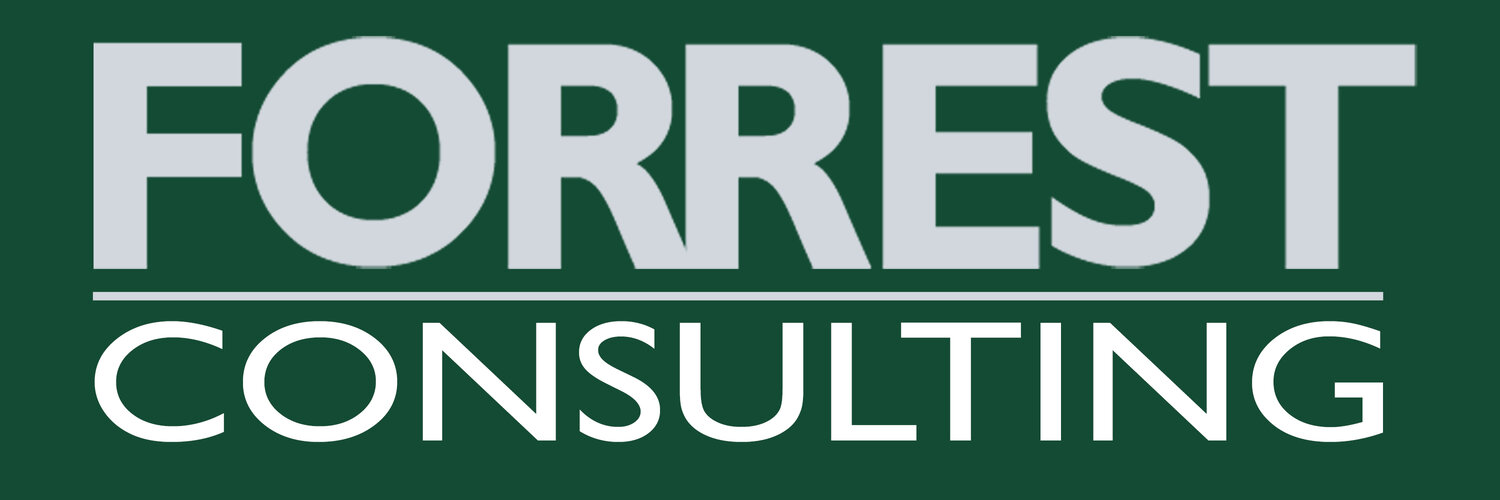
Strategic Thinking & Strategic Action
Fostering strategic thinking and strategic action by organizational leaders since 2007.
Archive
- March 2025
- February 2025
- January 2025
- December 2024
- November 2024
- October 2024
- August 2024
- July 2024
- June 2024
- May 2024
- April 2024
- February 2024
- January 2024
- December 2023
- November 2023
- October 2023
- July 2023
- August 2021
- April 2021
- March 2021
- February 2021
- November 2020
- October 2020
- September 2020
- July 2020
- June 2020
- May 2020
- March 2020
- October 2019
- September 2019
- July 2019
- April 2018
- January 2018
- December 2017
- November 2017
- October 2017
- September 2017
- August 2017
- January 2017
- December 2016
- November 2016
- October 2016
- September 2016
- August 2016
- February 2016
- October 2015
- March 2015
- November 2014
- October 2014
- September 2014
- July 2014
- May 2014
- March 2014
- February 2014
- December 2013
- September 2013
- August 2013
- March 2013
- February 2013
- December 2012
- October 2012
- June 2012
- May 2012
- March 2012
- February 2012
- January 2012
- December 2011
- November 2011
- October 2011
- September 2011
- August 2011
- June 2011
- May 2011
- April 2011
- March 2011
- February 2011
- April 2010
- October 2009
- June 2009
- May 2009
- April 2009
- March 2009
- February 2009
- May 2008
- February 2008
- August 2007
-
Action-oriented bias
- Nov 17, 2017 Trump trap: Action-oriented bias Nov 17, 2017
-
Approach-avoidance
- Sep 21, 2016 Approach or avoid? Sep 21, 2016
-
Bell curve bias
- Mar 28, 2020 We are biased by the bell curve Mar 28, 2020
-
Choice
- Oct 5, 2016 Managing choice Oct 5, 2016
-
Coaching
- Jan 7, 2025 Pick the best: Don’t let the bad drive out the good Jan 7, 2025
- Jan 22, 2024 Coaching and change Jan 22, 2024
- Apr 1, 2021 Let’s not be complacent about our ignorance! Apr 1, 2021
- Mar 10, 2021 So much can go wrong. Here’s how to make it go right. Mar 10, 2021
- Mar 10, 2021 Why settle? Go for the gold! Mar 10, 2021
- Mar 10, 2021 It's time for spring training. Are you ready to play on the A Team? Mar 10, 2021
-
Consensus
- Dec 6, 2016 No consensus for consensus Dec 6, 2016
-
Decision biases cases
- Oct 19, 2020 Short-sighted thinking: The case of the “hot new smartphone” Oct 19, 2020
- Sep 10, 2020 Changing our thinking to feel better. Yes, we do that! Sep 10, 2020
- Oct 24, 2019 Remember, history is written by the survivors Oct 24, 2019
- Oct 22, 2019 Beliefs about a group matter Oct 22, 2019
- Oct 15, 2019 Not knowing we don’t know Oct 15, 2019
- Sep 19, 2017 Case 12: Not missing the opportunity to lose billions Sep 19, 2017
- Aug 29, 2017 Case 11: Getting bitten by not seeing it Aug 29, 2017
- Aug 29, 2017 Case 10: When what worked didn’t work Aug 29, 2017
- Aug 28, 2017 Case 9: The climbers who perished by succeeding Aug 28, 2017
- Aug 28, 2017 Case 8: No accounting for incompetence Aug 28, 2017
- Aug 16, 2017 Case 7: Blind or incompetent? Perhaps both… Aug 16, 2017
- Aug 16, 2017 Case 6: Seeing what he wanted to see Aug 16, 2017
- Aug 13, 2017 Case 5: Getting burned by past successes Aug 13, 2017
- Aug 2, 2017 Case 4: I’m the boss, so I am right! Aug 2, 2017
- Aug 2, 2017 Case 3: The experts were wrong Aug 2, 2017
- Aug 2, 2017 Case 2: The battle that didn’t go as expected Aug 2, 2017
- Dec 12, 2016 Failure without facilitation: The French Canal Disaster Dec 12, 2016
- Oct 26, 2015 Decision traps, flaws and fallacies: Learn from my unexpected big decision Oct 26, 2015
-
Decision making
- Nov 6, 2024 Rise of the poker pros: 10 lessons for great success Nov 6, 2024
- Jan 5, 2024 What’s your magic number? Jan 5, 2024
- Oct 9, 2023 AI revisited: Will it ever make perfect decisions? Oct 9, 2023
- Sep 4, 2019 “The instant of decision is madness” Sep 4, 2019
- Apr 23, 2018 Despite our growing ignorance, we must decide Apr 23, 2018
- Apr 12, 2018 Can “Big Data” deliver “the right decision”? Apr 12, 2018
- Jan 18, 2018 The worst accident: “We’re going!” Jan 18, 2018
- Mar 8, 2015 10 surprising mental traps: Why we make bad decisions Mar 8, 2015
- Mar 10, 2014 Often wrong but never in doubt Mar 10, 2014
-
Decision making biases
- Mar 10, 2021 So much can go wrong. Here’s how to make it go right. Mar 10, 2021
-
Evidence
- Dec 16, 2016 Misuse of evidence can zap your strategy Dec 16, 2016
-
Evolution
- Aug 6, 2016 Smart phones on the savannah Aug 6, 2016
-
Gratitude
- Oct 25, 2017 Thank you for our connection Oct 25, 2017
-
Group decisions
- Nov 15, 2016 #2 error: Not using the group advantage Nov 15, 2016
- Oct 22, 2015 Open up your thinking: Make better decisions in a group process Oct 22, 2015
-
Leadership
- Nov 14, 2016 #1 error: The leader problem Nov 14, 2016
- Feb 1, 2016 Leaders who mislead: A tale of two movies Feb 1, 2016
-
Pre-mortem
- Sep 12, 2016 Thinking “as if” Sep 12, 2016
-
Risk
- Jun 9, 2020 The Black Swan and us Jun 9, 2020
- Jan 10, 2017 The risk of ignoring risk Jan 10, 2017
- Oct 14, 2016 Risk and regret Oct 14, 2016
-
Strategic planning
- Jan 4, 2025 California High Speed Rail to nowhere: Lessons for implementing our plans Jan 4, 2025
- Dec 17, 2024 Why New Year’s resolutions fail: The problem of implementation Dec 17, 2024
- Nov 10, 2024 Are you ready to bat? Nov 10, 2024
- Oct 9, 2024 Drift and big change challenge our success Oct 9, 2024
- Aug 19, 2024 Get real when you plan! Aug 19, 2024
- Apr 10, 2024 Bridge the strategy gap Apr 10, 2024
- Feb 23, 2024 Don't waste your time planning, unless... Feb 23, 2024
- Dec 18, 2023 The secret sauce of successful plan implementation Dec 18, 2023
- Nov 20, 2023 How to build commitment to change, revisited Nov 20, 2023
- Oct 3, 2023 Success Starts With a Big Vision Oct 3, 2023
- Aug 24, 2021 Sometimes you get what you need Aug 24, 2021
- Feb 25, 2021 Do you measure up? Feb 25, 2021
- Jul 28, 2020 Forget business as usual Jul 28, 2020
- Oct 9, 2014 What’s driving your organization? Oct 9, 2014
- Feb 20, 2014 This is not an infomercial Feb 20, 2014
- Feb 11, 2014 The Big Fail Feb 11, 2014
- Mar 12, 2013 Parsimony and planning Mar 12, 2013
-
Strategic thinking
- Feb 11, 2025 What to do when disaster ensues Feb 11, 2025
- Feb 27, 2024 Desirable difficulties Feb 27, 2024
- Jan 13, 2024 Business model question: Produce or provide? Jan 13, 2024
- Jan 5, 2024 What’s your magic number? Jan 5, 2024
- Jul 5, 2023 Think wide to succeed: How will you compete? Jul 5, 2023
- Mar 25, 2014 Flight 370 and strategic thinking Mar 25, 2014
-
Strategy
- Mar 17, 2025 Are you getting your share? Mar 17, 2025
- Feb 24, 2025 Know who you are up against! Feb 24, 2025
- Jan 18, 2025 Be better than the competition Jan 18, 2025
- Jul 23, 2024 Your pricing says it all… But what does it say? Jul 23, 2024
- Jun 23, 2024 We are people, not transactions Jun 23, 2024
- May 22, 2024 Is excellence - or failure - ahead? Answer five questions to know May 22, 2024
- Apr 8, 2024 What do your customers expect? Apr 8, 2024
- Nov 13, 2023 Demand a great brand! Nov 13, 2023
- Oct 31, 2017 Why not plan to be great, like Elon Musk? Oct 31, 2017
-
Success
- Jul 24, 2019 22 principles I have learned from being an athlete Jul 24, 2019
-
Sunk cost fallacy
- Mar 21, 2015 Sunk cost fallacy: Throwing good money after bad Mar 21, 2015

Making it obvious
A long while ago this blog was created to drive our vision that every organization has a strategic plan and is acting on it. Our quest was and remains remedying what we saw and still see as a major deficit in many organizations: The lack of strategic thinking, strategic planning and plan implementation.

To find a vision is to be human
What distinguishes humans and human organizations from other organisms and their groupings are intentionality and goal-seeking. Wolves hunt in packs and flocks of geese fly south for the winter, but their survival behavior is a result of evolution, not of thought that produces group behavior and direction. This understanding of the advantage that accrues to humans who think and act as leaders and functional group members is why I shudder as though I hear fingernails screeching on a blackboard when I encounter an organization without intentional direction. It's simple to keep doing the same thing; it's thoughtful, indeed, smart to change what you do to achieve a better result (or avoid losing out to smarter organizations).

Can you tell planning myths from truths?
Here's a list of a dozen statements about strategic planning. Can you tell the myths about strategic planning from the truths (or at least what I know to be the truths as a certified strategist who has been involved in planning for decades)?

Think “value creation strategies'“
Value is at the heart of business success. Learn what customers and other stakeholders will value, find ways to create value, grow value and maintain the value you provide in the face of others' frontal assaults and flanking innovation. Yet, we are in a world that on the face seems price driven. Whether it be Wal-Mart versus Target, automobile dealers, commodities suppliers or trade groups, price is where the action seems to be.

Sail with the fleet or alone?
In World War II the allies learned early on that it was better to sail merchant ships in protected convoys across the Atlantic Ocean as opposed to letting each ship chart its own course at its own rate. The escorted convoy offered more protection from deadly submarines, mines and air attack. Sometimes the protection was ineffective, even illusory, but the method did save ships and deliver essential food, goods and war material. Yet going it alone sometimes seems better. That's the theory of Blue Ocean, described by W. Chan Kim and Renée Mauborgne in their book, Blue Ocean Strategy. Blue Ocean encourages not doing the same thing as market leaders and competition and instead finding an open market space or niche that is uncontested. The iPad, Salesforce.com, Southwest Airlines, the Tata Nano, Netflicks - these are all examples of products and services that are more or less "Blue Ocean." Bue Ocean certainly seems compelling - clear water, no competitors attacking, growth and great destinations ahead! Yet, Blue Ocean is easier envisioned than achieved.

Fend off the fox and move!
What's the latest episode of your business? You know, what drama or problem or issue or sudden event are you wrestling with? Between news media encapsulation of whatever is happening at the moment as "the big thing to pay attention to" (something I somewhat regrettably helped promote as a former reporter and editor), television sit-com enactment of life as a series of short vignettes and Wall Street analyst intense scrutiny of every company move and short-term performance, we are taught to look at life as what's happening NOW in front of our noses. From a strategy perspective, this myopia is a very bad thing.

Out of the wilderness
There are times in my life when I need to take a trek, explore new territory, look at things from different angles, hear new voices, let ideas simmer and stew, start new endeavors and then push them along to see where they go. That's what I've been doing the past seven weeks rather than blogging on strategic thinking and strategic action. So what did I learn and stir up that others interested in strategic thinking and strategic action might find useful? First, I spent the best part of a week at the Association for Strategic Planning's annual conference and scored some great in-depth learning about important tools and approaches. I will delve more into what I learned and implications in future posts, but here are several things worth sharing now in condensed form.

Hello, Vandelay Industries
Remember the classic Seinfeld episode?
This funny story of George's potential employment with Vandelay Industries, part of what is reportedly Jerry Seinfeld's favorite episode of his show, came to mind a few days ago when both Kraft Foods and Abbott Laboratories announced names for their new spin-off companies.

Stop rearranging the deck chairs!
It happened several times this past week. I'm networking and meet a business person. I introduce myself as a consultant dealing in organizational strategy. The other person responds with something like, "Oh, I'm in strategy, too, I'm in change management." Yet, when we talk it becomes clear they are not operating at the strategic level, they deal with tactics, facilitating the introduction and development of projects, programs or processes in or between functional areas or departments (IT and accounting, for instance).

Herding the cats
Does a cat know it's a cat? If it knows it's cat - or doesn't know it's a cat - how does that influence its behavior? As a cat owner, I can tell you cats are highly assertive and very effective at getting their way. Sam the cat has me well trained to meet his needs. I am not sure what he thinks he is, but he has a strong self identity from which flows the set of actions he takes every day: sleep, eat, play, roam, watch birds, seek affection, bite, and so on.

Recognize the problem
As a strategic planning professional, I'm driven by these questions: How can I be a better strategic planner What's "state of the art" and "cutting edge" in strategic planning; What are significant strategic planning trends? What are the problems with strategic planning and how can they be addressed to improve planning use, process and outcomes? I've initiated discussions to try to get at these issues in three LinkedIn groups: Strategic Planning Xchange, Association for Strategic Planning and Strategic Planning Society. The discussions have been robust, offering great insight on planning issues and trends.

10 benchmarks for effective strategies
Strategies are the major planned steps that will move the organization across the strategic gap from where it is today and where it otherwise is heading to the brighter future offered by the organization's shared vision of success. Organizational success most always arises from crafting and executing strategies to move toward a vision.

Bring in “the implementers”
Strategic planning occurs in a realm that can make operations, sales and other highly tactical, results-focused people very uncomfortable. Taking a big step back, pushing thought laterally, entertaining other realities, trying to look over the horizon to see what is or will be there, gaming various futures and seeking strategies that will reroute or even upend the organization can be quite unnerving to people who are focused on winning the current battle being fought on the ground.Yet these people are to be celebrated, because they are the implementers. Without implementing strategies, however elegant the strategic plan and resulting strategies are, the organization will go nowhere and certainly will not change for the better.

Act on your ideas!
There's the idea...and then there's making it happen. I think we should be focusing on the "ideas versus execution" challenge. The idea is important, but the execution is more important. Seeing the mountain and saying, "hey, let's climb it" is far different than actually climbing it.

10 entrepreneurial mistakes
Serial entrepreneurs like me typically retain strong memories of our first big entrepreneurial venture, sometimes great, sometimes not so great. Whatever the outcome, we are best served by learning from what we did, so in future ventures we avoid what did not serve us well.

Timing is everything
The speed of strategy is not related to calendar time. Timing for the right market move, investment or shift in focus is predicated on opportunity or threat, and ability, not the start of the quarter or year. Sometimes the need for commitment to or change in strategy is slow in developing, other times it arises lightning fast. The annual budgeting and resource allocation cycle is of course a key step in plan implementation. But it should not drive the strategic planning process. Finding winning strategies and getting on the road to implementing them should be driven by opportunity, need, threat, change, competition and other similar factors. Like budgeting, planning should be recurring, but just making it a rote process ahead of budgeting disconnects it from the events that make planning so important. Fundamentally, the time to plan is when you either don't have strategies that are pulling you to an idealized future vision for the organization or when your strategies are not longer effective or appropriate.

What’s it called?
The nomenclature issue has vexed me throughout my planning career, most recently as I prepared to sit for the Strategic Management Professional certification examination. The study materials and references covered the gamut of planning practices, systems and approaches. It was obvious that no standard language exists in strategic planning. (The CPAs and CFOs have it easy, with accounting organizations and governmental bodies promulgating accounting standards. As long as you know what set of accounting standards you are following, you can look up the term and know what it means!)
Focus, people!
Over the past month I have been interviewing stakeholders for a client's strategic planning process. The interviews have sought feedback on strategic options open to the client. The options range from "keep on being whatever the client wants us to be" to "identify a few big opportunities and really commit to tackling them." The feedback I am getting from these interviews is that most stakeholders believe the organization will grow much faster and have much greater impact and success if it opts to focus on a few big opportunities rather than continue to "be what the client wants us to be." Is that a surprise? Maybe not, but in thinking about most of my client work over the years I recognize that lack of focus has been a big issue. In fact, I think lack of focus is a bigger barrier to greater success than often recognized. Surely it's a continuing challenge that most of us grapple with.
Let’s ask the crowd
A key aspect of developing transformational strategies is understanding the landscape that needs to be traversed by the organization on the way to greater success. Strategic planners develop an environmental scan to identify the external factors that are likely to have a large impact on the organization as it goes down the road. Factors to be considered in an external environmental scan might include but are hardly limited to economic indicators and forecasts, legislative and governmental trends, technological developments, energy and ecological factors, social trends and values, agricultural and food forecasts, labor concerns and trends, transportation forecasts, and much more. The question arises: Where does one get this information on a timely and comprehensive basis?

Think before stretching
Talking this morning with a serial entrepreneur whom I highly respect, the question of business scale came up. What's the right size for your business? Should you stretch to grow?
